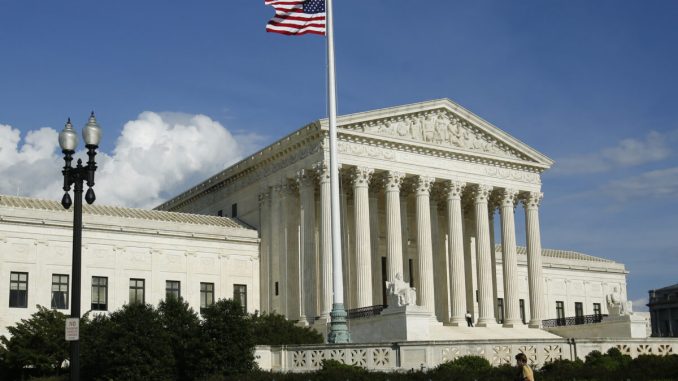

Overturning a 9th Circuit Court of Appeals ruling, a unanimous Supreme Court ruled this morning that a previously deported illegal alien is not excused on appeal from the legal requirement of demonstrating he previously exhausted all administrative remedies and was improperly deprived of judicial review.
The high court’s opinion in the case, United States v. Palomar-Santiago, court file 20-437, was written by Justice Sonia Sotomayor.
Refugio Palomar-Santiago, a Mexican national, was granted permanent resident status in 1990. He lost that status in 1991 following a driving under the influence (DUI) conviction in California state court, which, at the time, was deemed a crime of violence and therefore an aggravated felony under the Immigration and Nationality Act (INA) that warranted deportation. He was deported in 1998.
Before that, Congress enacted the Antiterrorism and Effective Death Penalty Act of 1996 which limited collateral attacks –that is, challenges to previous court rulings in unrelated cases— on deportation orders. Defendants facing unlawful reentry charges have to meet three prerequisites before they can challenge their original removal orders, Sotomayor wrote in the ruling dated May 24.
The legal provision, known as 8 U.S. Code § 1326, states: “In a criminal proceeding under this section, an alien may not challenge the validity of the deportation order . . . unless the alien demonstrates that— (1) the alien exhausted any administrative remedies that may have been available to seek relief against the order; (2) the deportation proceedings at which the order was issued improperly deprived the alien of the opportunity for judicial review; and (3) the entry of the order was fundamentally unfair.”
In 2004, the Supreme Court ruled in Leocal v. Ashcroft that DUI crimes that lack mens rea, or criminal intent, or merely require negligence for a conviction, aren’t crimes of violence or aggravated felonies under federal law that necessarily require the convicted alien to be deported.
“Palomar-Santiago’s removal order thus never should have been issued,” Sotomayor wrote.
In 2017, Palomar-Santiago was living in the United States again and was indicted for reentering illegally after being deported, a more serious offense than first-time unlawful entry. He fought the indictment, arguing the crime for which he was originally deported was no longer considered a deportable offense and that his removal in 1998 was therefore fundamentally unfair.
The U.S. District Court agreed and dismissed the indictment. The U.S. Court of Appeals for the 9th Circuit affirmed the ruling May 14, 2020, holding that the government may not prosecute for reentry where a previous removal order was invalid.
“The question for the Court is whether Palomar-Santiago is excused from making the first two of these showings, as the Court of Appeals for the Ninth Circuit held, because his prior removal order was premised on a conviction that was later found not to be a removable offense,” Sotomayor wrote.
“The Court holds that the statute does not permit such an exception.”
“The Ninth Circuit’s interpretation is incompatible with the text of §1326(d)” which provides that “defendants charged with unlawful reentry ‘may not’ challenge their underlying removal orders ‘unless’ they ‘demonstrat[e]’ that three conditions are met…”
“The requirements are connected by the conjunctive ‘and,’ meaning defendants must meet all three. When Congress uses ‘mandatory language’ in an administrative exhaustion provision, ‘a court may not excuse a failure to exhaust,’” Sotomayor wrote citing the 2016 precedent of Ross v. Blake.
“Yet that is what the Ninth Circuit’s rule does.”
The first two procedural requirements of §1326(d) “are not satisfied just because a noncitizen was removed for an offense that did not in fact render him removable,” the justice wrote.
“Indeed, the substantive validity of the removal order is quite distinct from whether the noncitizen exhausted his administrative remedies … or was deprived of the opportunity for judicial review.”
This is a developing story. It will be updated.






Be the first to comment